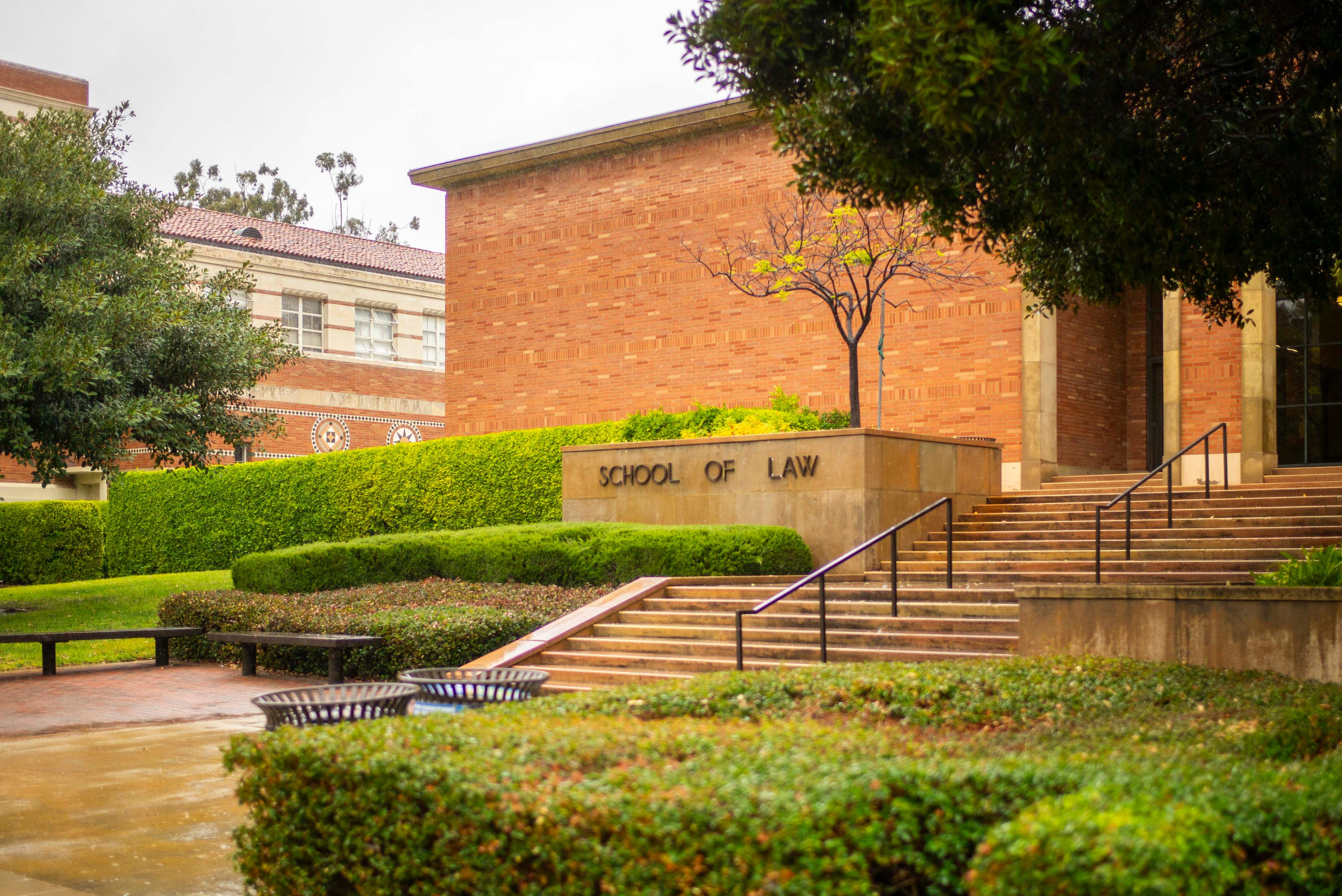UCLA Law School, Berlin scholars hold panel on voter outreach and election
The UCLA School of Law is pictured. Scholars from UCLA and Germany discussed voter outreach at a Oct. 22 UCLA Law School panel. (Daily Bruin file photo)
By Amy L. Wong
Nov. 4, 2024 8:48 p.m.
This post was updated Nov. 6 at 1:56 a.m.
Scholars from UCLA and Berlin discussed strategies for voter outreach at an Oct. 22 UCLA Law School panel.
The discussion, titled “What Moves an Electorate? Political Narratives in a Polarized World” was held at the UCLA School of Law and was moderated by Alexandra Lieben, the deputy director of the UCLA Burkle Center for International Relations. Lynn Vavreck, a political science professor at UCLA, and Andrea Römmele, a political communication professor at the Hertie School in Berlin, spoke about celebrity endorsements, local politics and the perceived strengths of each of the candidates relative to the other’s weaknesses.
Francesca Brennan, a third-year global studies student who attended the event, said she was surprised this election cycle’s discourse mostly revolved around personality rather than policy, and there was a notable absence of compromise regarding divisive topics.
Vavreck said during the panel that American voters and politicians previously argued about topics that were easier to compromise on, such as the tax rates. Now, Americans are fighting over topics that are more difficult to agree on, Vavreck said.
“You can’t be married on Monday and Tuesday, not on Wednesday and Thursday and on Friday,” she said during the panel. “We can’t compromise on same-sex marriage.”
Additionally, Vavreck said running long campaigns gives voters ample time to learn about the flaws of the candidates and the policies they intend to implement.
“Be careful what you wish for because long campaigns mean – and this is demonstrated with evidence – that more people learn about what the parties and the candidates stand for,” Vavreck said during the panel. “You want voters showing up and they don’t know anything? Have a short campaign.”
Oliver Hartmann, an attendee of the event and the director of the Thomas Mann House – a Los Angeles residency program for German scholars – said he was highly anticipating Römmele’s input at the panel because she is one of the fellows at Thomas Mann House.
Römmele provided an international perspective on the impact migration has on the economy. She said during the panel that Germany needs more migration due to the country’s demographics. However, Römmele added that if migration is not properly utilized, she thinks Germany’s economy in 10 years will be a disaster.
Vavreck said during the panel that when creating a political campaign, candidates must identify their strengths, and former President Donald Trump’s favored issues are immigration and border control.
Mariam Ally, a fourth-year political science student and an intern at the UCLA Burkle Center for International Relations, said when listening to the panel she was focused on learning more about the impact of migration on the economy and how states have resisted migration.
Römmele also said during the panel that the German government stopped promoting a positive narrative about the future, adding that she thinks the German population does not think of prosperity in the foreseeable future because of the absence of an inspiring narrative.
“What democracies need to have is … a positive narrative into the future,” Römmele said. “Democracy only functions in the long run if you have a positive story to tell for the future, if you can promise your electorate that they will be better off in four years, eight years, 12 years and so on.”
Römmele said there are similarities between the narratives of the Alternative for Germany Party and former President Trump’s campaign due to their emphasis on returning to the past.
Vavreck said during the panel that some Americans became skeptical of former President Barack Obama because he is from an immigrant family that had the goal of helping other immigrants achieve the American Dream.
She added that some felt as though the government forgot about Americans who had been there before because they are supporting other demographics that were newer to the country. Consequently, some Americans began to think that immigrants were unfairly succeeding, said Vavreck.
Römmele said Germany has been experiencing something similar, especially in Eastern Germany. The older generation has seen significant changes in their lifetime and they worked diligently to make a life for themselves, she added.
Hartman said he was surprised by how similar the United States and Germany are, despite being on opposite sides of the Atlantic Ocean.
“When we talk about democracy and the societies and the communities, the problems are the same,” he said. “The narratives are very similar, and the reasons for (the) decline of democracy are quite similar.”
